American Faces Explores Our Obsession with Self
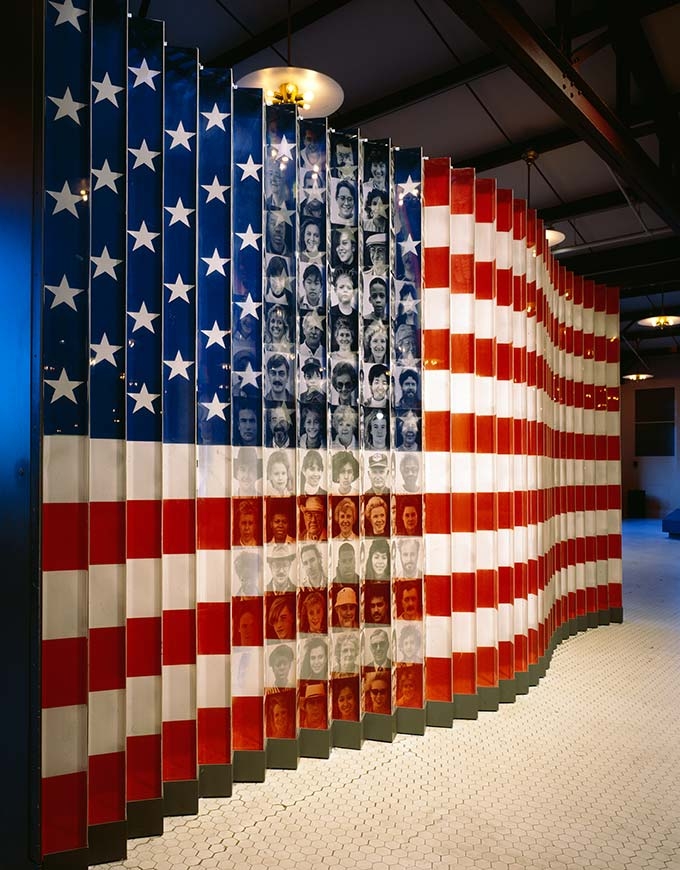
American Faces: A Cultural History of Portraiture and Identity
February 17–April 30, 2017
For immediate release: 1/27/17
For further information contact: Richard Saunders, director, at rsaunder@middlebury.edu or (802) 443-5235
Middlebury, VT— Portraits. We know what they are, but why do we make them? Americans have been celebrating themselves in portraits since the arrival to the colonies of the first itinerant portrait painters who created images to commemorate loved ones, glorify the famous, establish our national myths, and honor our shared heroes. Whether painting in oil, carving in stone, casting in bronze, capturing on film, or calculating in binary code, we spend considerable time creating, contemplating, and collecting our likenesses.
American Faces: A Cultural History of Portraiture and Identity, which opens February 17 at the Middlebury College Museum of Art, brings together ninety portraits from more than twenty collections to explore and explain why Americans have been fascinated with images of themselves for more than 300 years.
The exhibit, along with an accompanying book of the same title, recently published by the University Press of New England, is the result of a number of years of work on the subject by museum director Richard Saunders whose approach to the subject has differed from others who have explored American portraiture.
“One goal of mine,” Saunders notes, “has been to broaden the definition of portraiture to include many images, such as snapshots, which are often ignored by scholars primarily because they are by anonymous amateurs. In so doing I hope to enable viewers to make better sense of the more common types of portraits that routinely pass before our eyes—in the media, in public places, and in the home. Rather than argue how ‘studied’ or ‘knowing’ a portrait should be, both the exhibit and the book examine our lengthy, complicated, and often intense relationship with images of ourselves. But this is not a survey—an epic undertaking by any measure—rather, it is an attempt to give structure to the volume and variety of images that result from our enormous appetite for recording faces.”
Divided into seven sections, the exhibit explores such topics as the rich, the rise of the photographic portrait, celebrity and fame, propaganda, public portraits and memorials, as well as what happens to the individual portrait when it is grouped with others. Interactive elements of the exhibit encourage visitors to take selfies and send them to the museum for display, or take their portraits in a vintage photo booth, just as Andy Warhol did more than 50 years ago.
Among the portraits included in this landmark exhibit are the remarkable image by Charles Willson Peale (1741–1827) of James Peale Painting a Miniature (c. 1795); a recently discovered daguerreotype of the blacksmith and plow manufacturer, and one-time Middlebury resident, John Deere; John Rogers’ enormously popular parlor sculpture The Council of War (1868); a disarming studio wedding portrait of Caroline Pedregon and Jesus Jose Urguidi (1934); A Harlem Couple Wearing Raccoon Coats Standing next to a Cadillac on West 127th Street (1932) by the noted African American photographer James Van Der Zee; one of George Catlin’s astonishing Native American portraits from the 1830s Shón-ka-ki-he-ga, Horse Chief, Grand Pawness Head Chief (1832); and Andy Warhol’s legendary portrait of Ethel Scull, the New York art collector, on loan from The Warhol Museum.
Also on view are a number of portraits from Middlebury’s own collection acquired during the past decade, including an unsettling panoramic group photograph of a gathering of women members of the Ku Klux Klan, an early nineteenth-century marble bust of George Washington, and a rare early nineteenth-century colored wax profile portrait.
“This fun, fast-paced tour of American portraiture from the colonial era to the present…zigzags through our national history…to show how Americans have portrayed themselves in art, photography, and other media. Facebook may be a recent phenomenon, but American Faces demonstrates that the compulsive need to present a likeable image of the self to friends and strangers goes back to the founding of the country.”
—David M. Lubin, author of Grand Illusions: American Art and the First World War
Related Events
[view:events==228213/1676] [view:events==228214/1677] [view:events==228214/1655]
Press Images
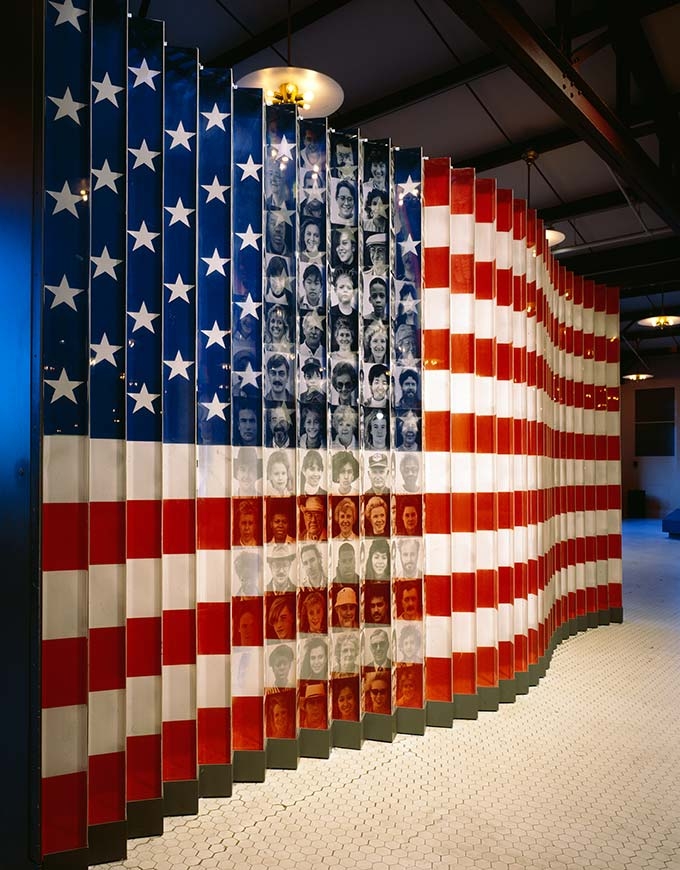
American Flag of Faces Exhibit, Ellis Island, New York, c. 1990–2011. Photographs in the Carol M. Highsmith Archive, Library of Congress, Prints and Photographs Division.
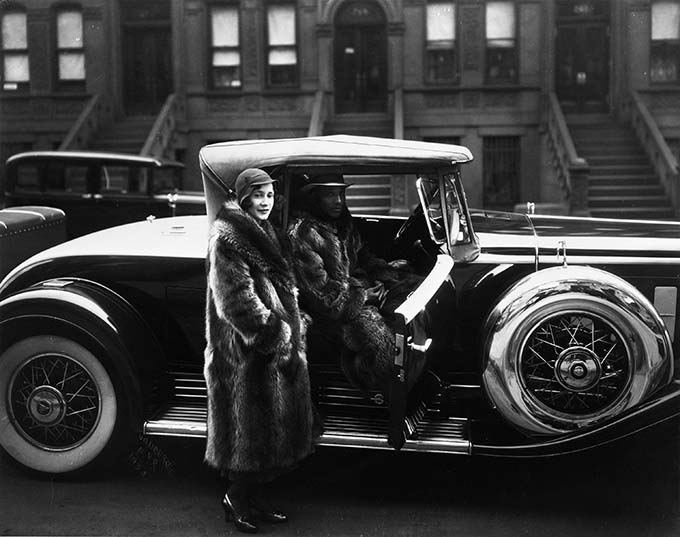
James Van Der Zee (1886-1983), A Harlem Couple Wearing Raccoon Coats Standing next to a Cadillac on West 127th Street, 1932, gelatin silver print. Library of Congress, Washington, D.C.
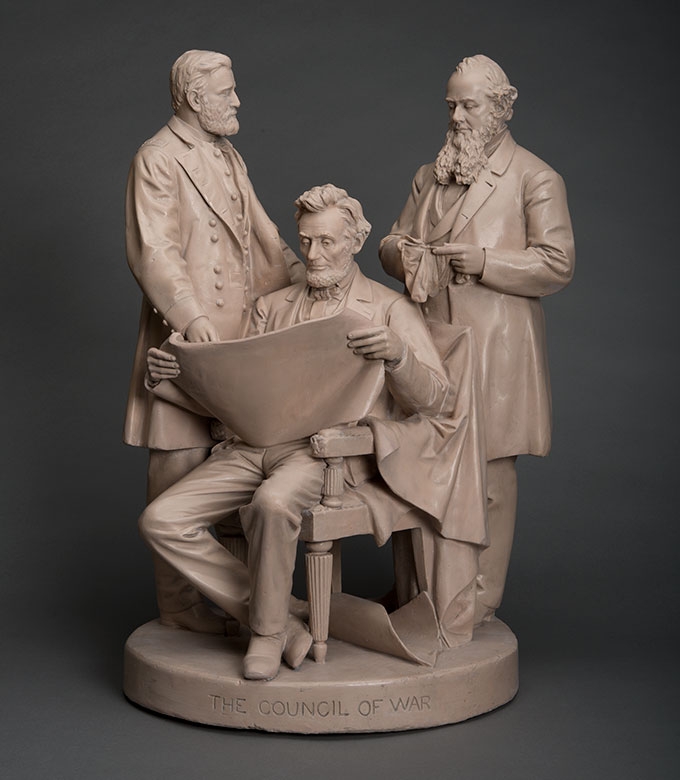
John Rogers (1829-1904), The Council of War, 1868, painted plaster. Collection of Middlebury College Museum of Art. Purchase with funds provided by the Walter Cerf Art Fund, 2014.045
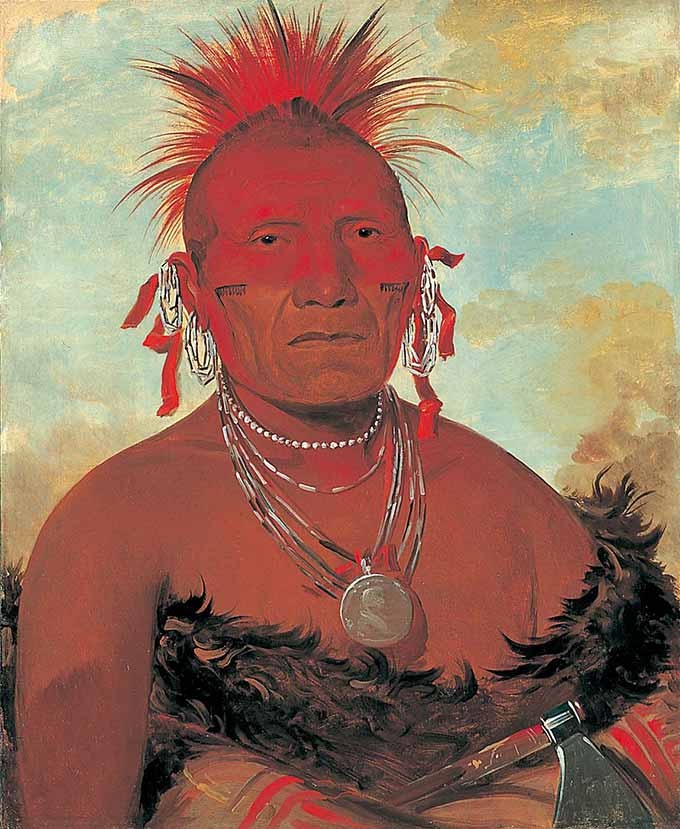
George Catlin (1796-1872), Shón-ka-ki-he-ga, Horse Chief, Grand Pawness Head Chief, 1832, oil on canvas. Smithsonian American Art Museum, Washington, D.C. Gift of Mrs. Joseph Harrison, Jr. 1985.66
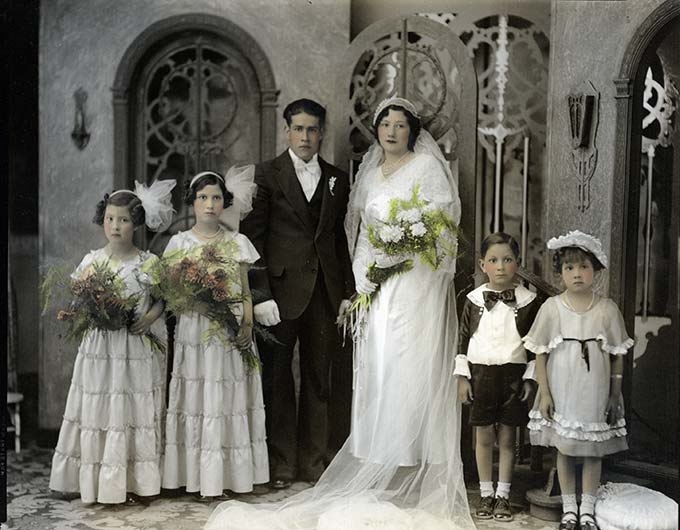
Alfonso Casasola (died 1948), Wedding of Caroline Pedregon and Jesus Jose Urguidi, 1934, hand-colored photograph. University of Texas at El Paso, Special Collections Department
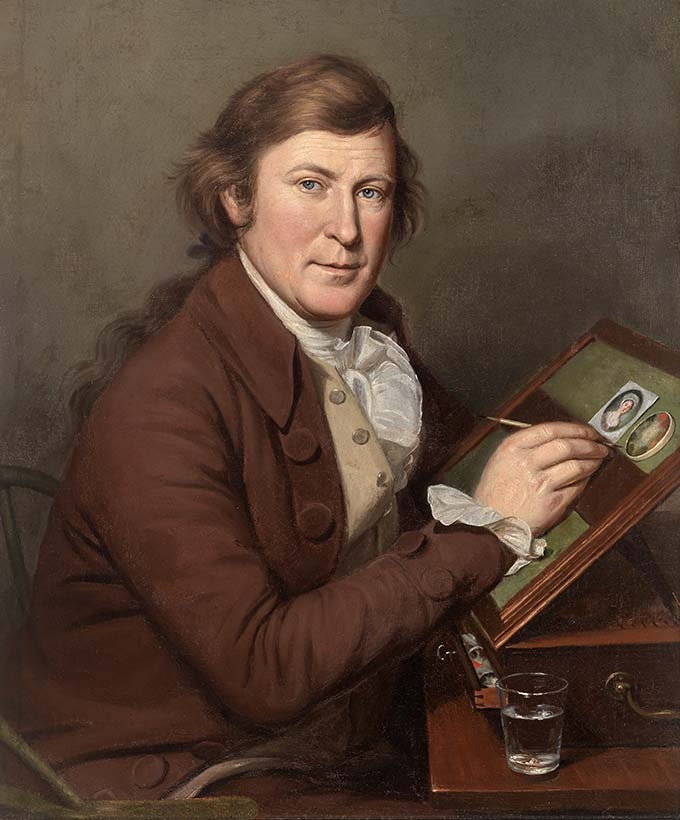
Charles Willson Peale (1741–1827), James Peale Painting a Miniature, c. 1795, oil on canvas. Mead Art Museum, Amherst College. Bequest of Herbert L. Pratt (Class of 1895)
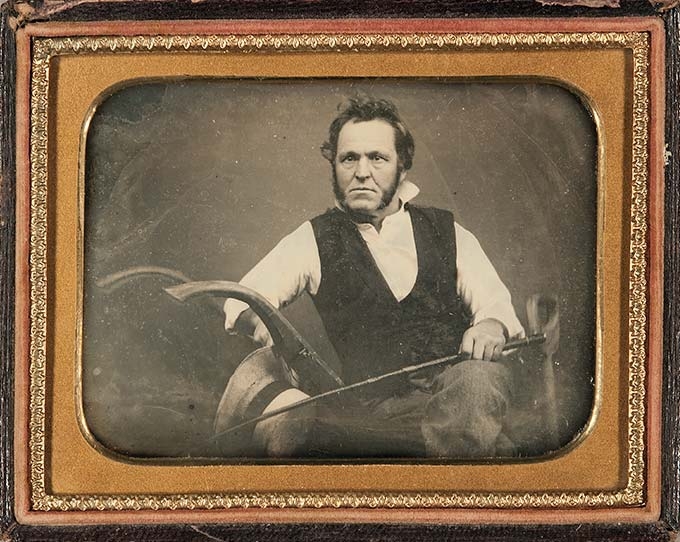
Unknown photographer, John Deere (1804–1886), c. 1851–1856, daguerreotype, quarter-plate. Collection of Middlebury College Museum of Art. Purchase with funds provided by the Electra Havemeyer Webb Memorial Fund, 2016.012
The Middlebury College Museum of Art, located in the Mahaney Center for the Arts on Rte. 30 on the southern edge of campus, is free and open to the public Tues. through Fri. from 10 a.m. to 5 p.m., and Sat. and Sun. from noon to 5 p.m. It is closed Mondays. The museum is physically accessible. Parking is available in the Mahaney Center for the Arts parking lot. For further information and to confirm dates and times of scheduled events, please call (802) 443–5007 or TTY (802) 443–3155, or visit the museum’s website at museum.middlebury.edu.
